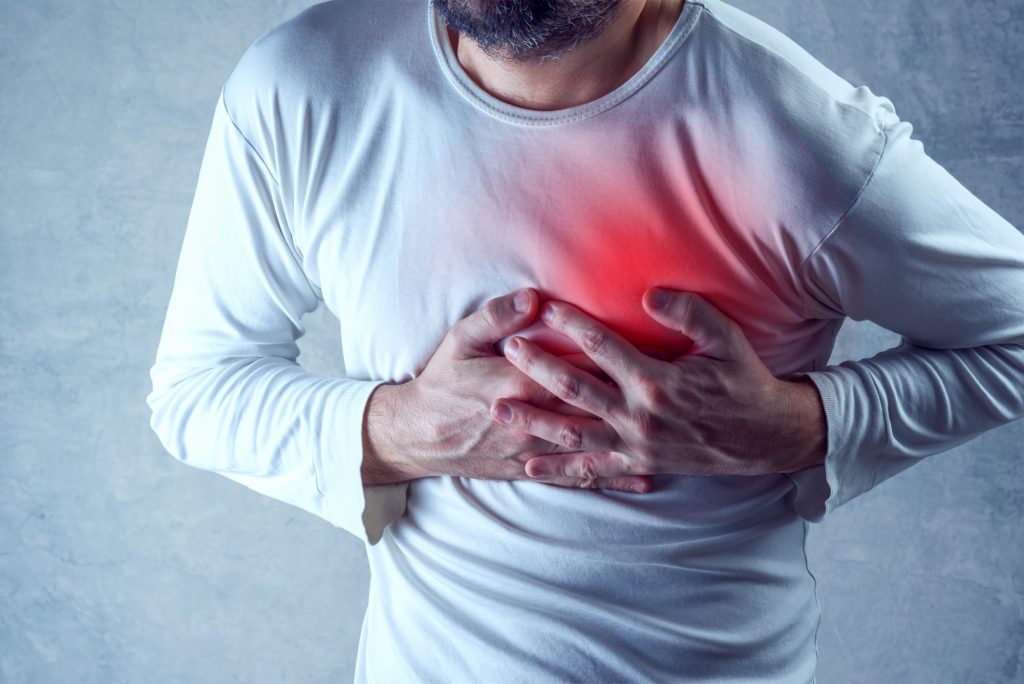What Is Heart Disease? 7 Things You Need To Know

Severe heartache, man suffering from chest pain, having heart attack or painful cramps, pressing on chest with painful expression.
In the United States alone, 1 person dies every 36 seconds from cardiovascular disease. The cost in this country of heart disease is about $363 billion from 2016-2017.
If you’re curious about this condition, you might ask yourself, what is heart disease? There are certain things that you’ll want to know as well, such as prevention. Read this article on what you’ll want to know about heart disease and make sure that your heart is healthy today!
What Is Heart Disease?
When it comes to coronary ctas, they can find a variety of heart disease conditions. The most common heart disease conditions are congenital defects, coronary artery disease, and diseases of the blood vessels.
The common types of heart disease could lead to other problems such as:
- Heart Failure
- Heart attack
- Cardiac arrest
- Aneurysm
- And more
- What Causes Heart Disease?
The cause of your heart disease will depend on the type. When you have a buildup of fatty plaques within your arteries, this is the most common reason for coronary artery disease.
If you don’t exercise, have a poor diet, smoke, or are overweight, you can increase your risk of this. One of the many types of heart disease is heart arrhythmia.
Heart arrhythmias can be due to:
- Stress
- Coronary artery disease
- Drug abuse
- Diabetes
- Smoking
- Valvular heart disease
- High blood pressure
- And other causes
- Heart Disease Diagnosis
There are different tests that your doctor might order such as Holter monitoring or an electrocardiogram. A Holter monitor is a portable ECG device.
Your doctor will have you wear it for about 24-72 hours. It finds and diagnoses any heart rhythm problems that you might be experiencing.
A regular ECG exam could miss these heart problems. An ECG is a painless test that’ll record the electrical signals in your heart. It can find odd heart rhythms that you might be experiencing at the moment.
- Treatment Options
Your heart health will be top of the list from your doctor. Some procedures can include heart bypass surgery or stents.
A left ventricular assist device might be another option. A surgeon will place it inside of your chest. It helps your heart pump oxygen-rich blood throughout the day.
Lifestyle changes might be another factor that your doctor recommends. This can include a low-sodium or fat diet.
Speak with your doctor about lifestyle changes that could help. Treatment can also include quitting smoking, exercising on most days, and limiting how much alcohol that you take.
- Heart Disease Medication
Angiotensin II Receptor Blockers might be an option for you. They’ll decrease certain chemicals that narrow blood vessels. Blood will be able to flow more easily through the body.
ACE Inhibitors dilate or widen your blood vessels. Doing this will increase the amount of blood that your heart pumps. It also lowers your blood pressure.
If you have heart disease, your doctor might have you take aspirin. Aspirin is a common medication that people take to prevent strokes.
- Risk Factors
If you have high blood cholesterol, you have a poor diet, or have a family history of heart disease, you’re at an increased risk of heart disease. High blood cholesterol can lead to an increase in plaque formation.
Smoking is another risk factor since nicotine tightens your blood vessels. Carbon monoxide can also damage the inner lining. This increases your risk of atherosclerosis.
Men have a higher risk of heart disease than women. After menopause, the risk for women increases.
If you’re obese, speak with your doctor about weight loss tips. This could save a life since excess weight could increase your chances of forming heart disease.
Having poor dental health could lead to heart disease as well. If you have unhealthy gums and teeth, germs can then enter the bloodstream and enter your heart. Once this occurs, it can lead to endocarditis.
- Symptoms
If you’re experiencing heart disease, you might have symptoms that present. These can include numbness in the leg or arm. You might also experience chest pain.
A racing heart, dizziness, shortness of breath, or chronic fatigue can be other signs that you don’t want to ignore. Contact your doctor and get checked if you’re experiencing any of these symptoms. They’ll be able to tell you what treatment option is right for you.
- Common Types
The common types of heart disease include congenital heart defects, coronary artery disease, dilated cardiomyopathy, and more. An arrhythmia can be a slow, rapid, irregular, or early heartbeat.
Another name for a heart attack is a myocardial infarction. This is when there’s an interruption of the blood flow to the heart. This can destroy or damage part of the heart muscle.
A heart attack is often caused by a blood clot or plaque. It can also occur if an artery spasms or narrows.
If you have heart failure, your heart is still working. It’s not working as well as it should be though. If you have other untreated heart conditions, it can lead to this.
Answering the Question To, What Is Heart Disease?
After exploring this guide, you should have a better idea of the answer to the question, what is heart disease? Reading this guide will help you identify if you maybe have any of these symptoms. Remember that if you’re experiencing any of this, it’s important to speak with your doctor.
Would you like to read more informative health content? Be sure to check out our other articles on our site today!






